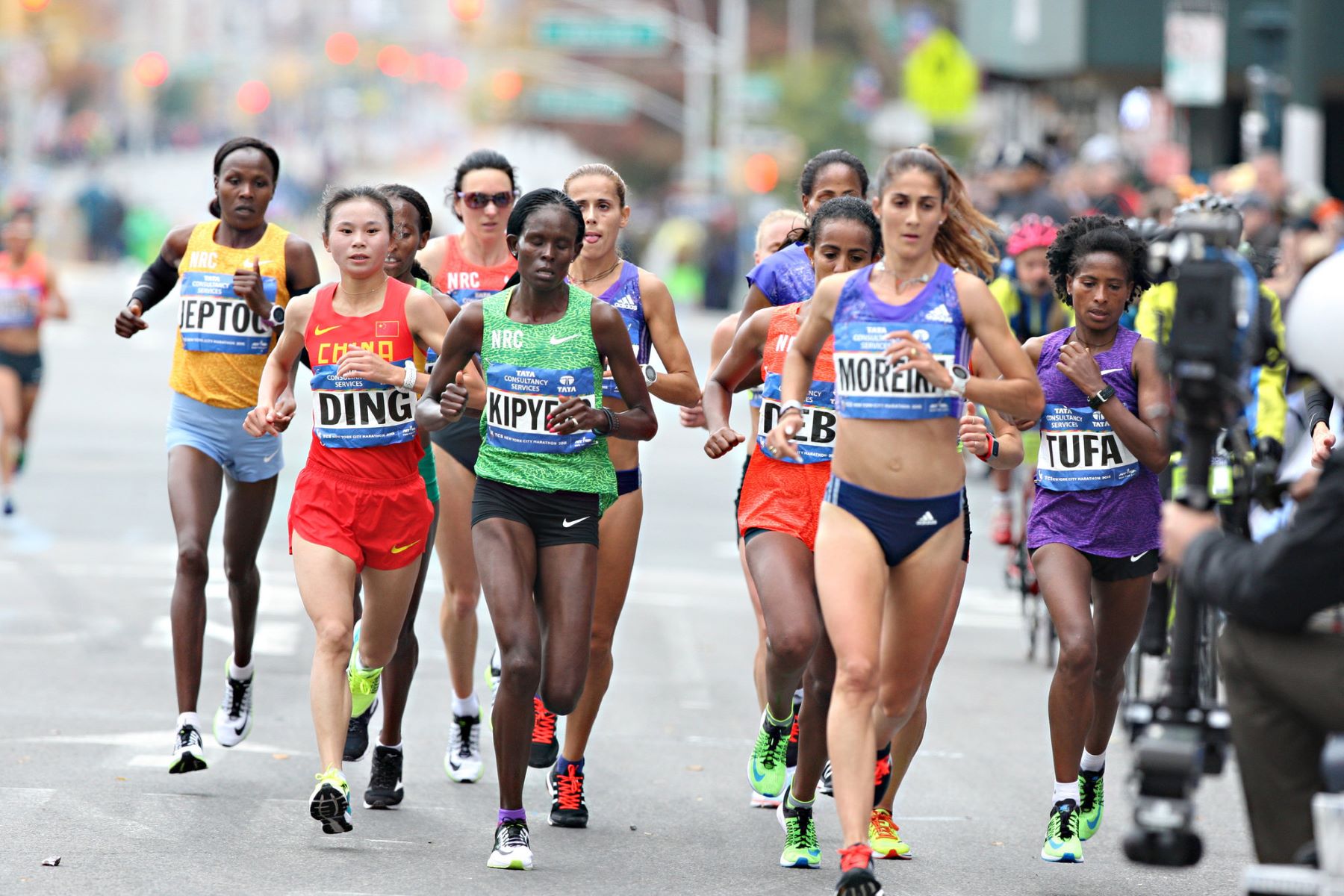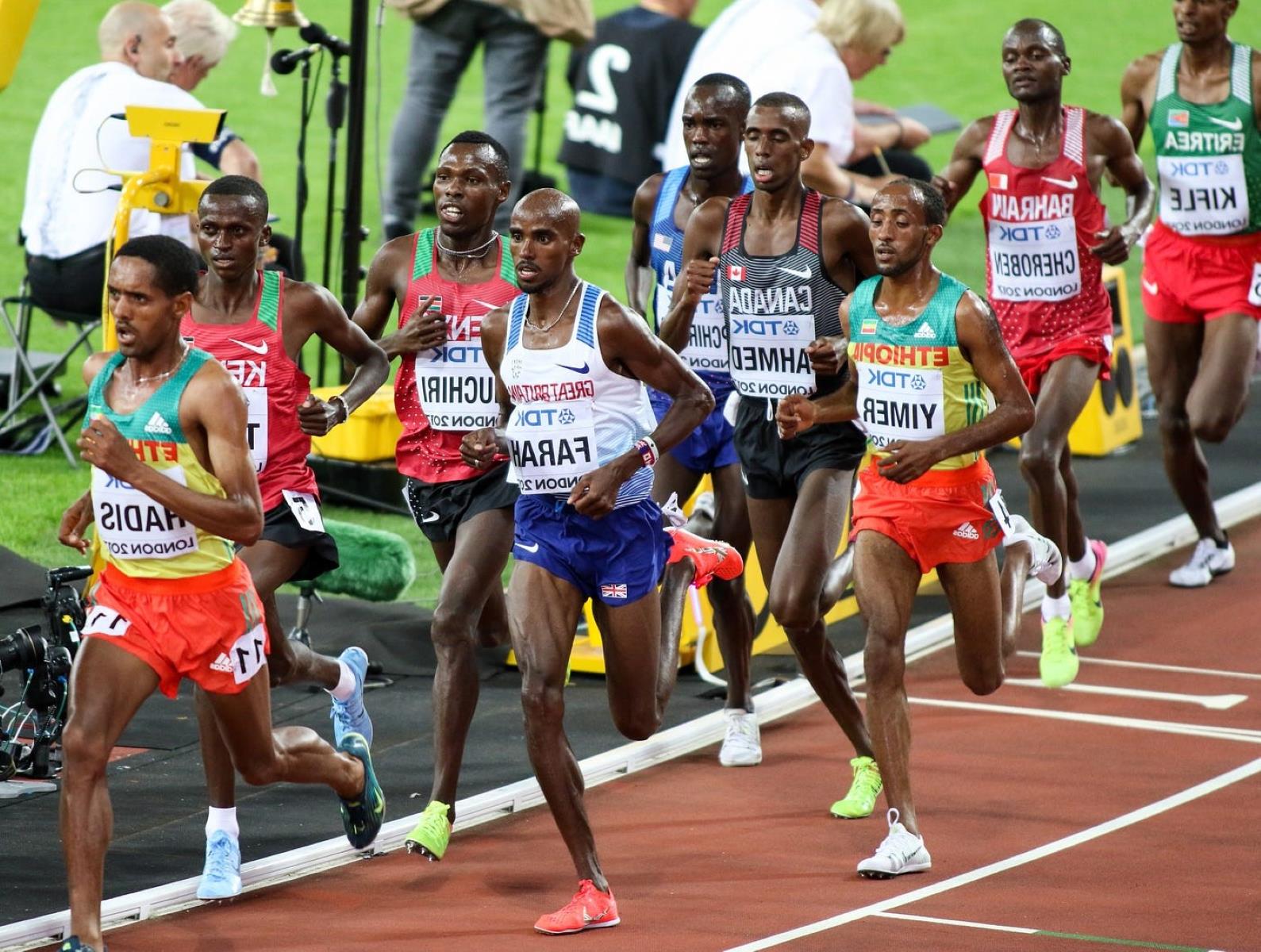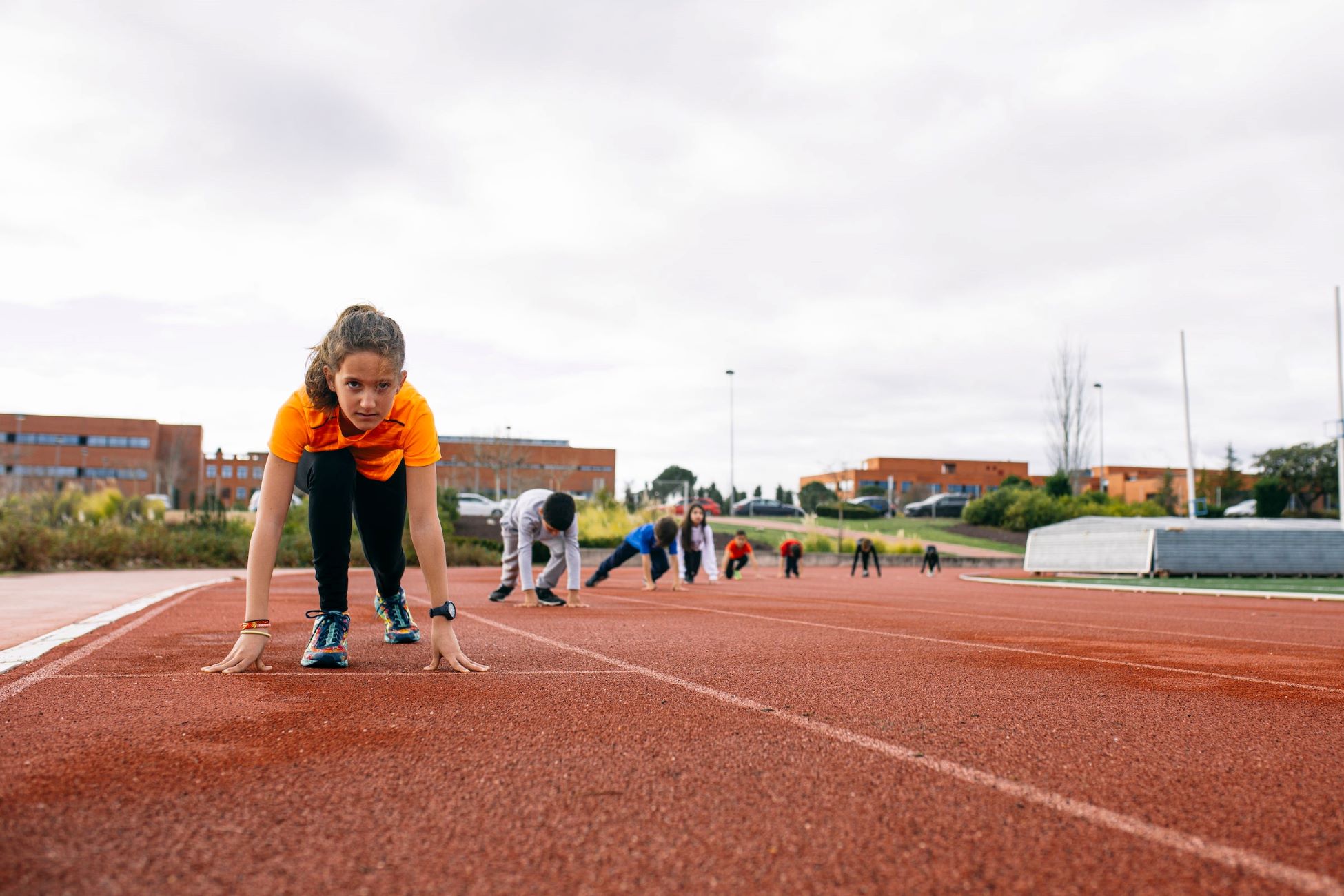Home>Races & Events>Marathon Guide>What Is The Typical Duration For Completing A Marathon?


Marathon Guide
What Is The Typical Duration For Completing A Marathon?
Published: February 21, 2024
Discover the typical duration for completing a marathon with our comprehensive Marathon Guide. Learn about training, pacing, and more to prepare for your next race.
(Many of the links in this article redirect to a specific reviewed product. Your purchase of these products through affiliate links helps to generate commission for Therunningadvisor.com, at no extra cost. Learn more)
Table of Contents
Factors Affecting Marathon Completion Time
The duration it takes to complete a marathon can vary significantly from one individual to another. Several factors play a crucial role in determining the completion time of a marathon. Understanding these factors is essential for both novice and experienced runners aiming to improve their performance.
Read more: What Is The Typical Speed For Walking?
1. Fitness Level
The fitness level of a runner is a fundamental determinant of marathon completion time. Individuals with a higher level of cardiovascular fitness and muscular endurance are likely to finish the marathon in a shorter duration compared to those who are less fit. Regular aerobic and strength training can significantly enhance a runner's fitness level, leading to improved marathon performance.
2. Training Regimen
The training regimen followed by a runner leading up to the marathon greatly influences their completion time. A well-structured training program that incorporates long runs, speed work, and adequate rest periods can prepare the body for the physical demands of a marathon. Consistent and disciplined training is essential for building endurance and speed, ultimately impacting the time taken to complete the race.
3. Terrain and Course Profile
The terrain and course profile of the marathon route can have a substantial impact on completion time. Courses with challenging elevation changes, such as steep inclines or declines, may slow down runners compared to flat or gently rolling courses. Additionally, factors such as weather conditions and altitude can further affect the overall race time.
4. Nutrition and Hydration
Proper nutrition and hydration play a critical role in marathon performance. Inadequate fueling before and during the race can lead to fatigue and decreased energy levels, potentially prolonging the completion time. Conversely, strategic fueling and hydration practices can support sustained energy levels and optimal performance throughout the race.
Read more: What Is The Typical Speed For Running?
5. Mental Toughness
The mental fortitude of a runner significantly impacts their marathon completion time. Endurance events like marathons often present physical and mental challenges. Developing mental resilience and employing effective coping strategies during moments of fatigue or discomfort can help runners maintain pace and focus, ultimately influencing their overall completion time.
Understanding these factors and their impact on marathon completion time is essential for runners seeking to optimize their performance. By addressing these variables through targeted training, strategic planning, and mental preparation, individuals can work towards achieving their desired marathon completion goals.
Training Programs for Marathon Preparation
Training for a marathon is a comprehensive process that requires careful planning, dedication, and a structured approach. A well-designed training program is essential for preparing the body to endure the physical demands of a 26.2-mile race. Here, we delve into the key components of effective marathon training programs and the strategies that can contribute to improved performance on race day.
1. Long Runs
Long runs form the cornerstone of marathon training programs. These extended training sessions, typically conducted once a week, gradually increase in distance to build endurance. Long runs simulate the physical and mental challenges of completing the full marathon distance, allowing runners to adapt to sustained periods of exertion and develop the mental resilience necessary for race day.
2. Speed Work
Incorporating speed work, such as intervals, tempo runs, and hill repeats, into the training regimen is crucial for enhancing overall running performance. These structured workouts help improve cardiovascular fitness, increase running efficiency, and boost speed. By integrating speed work into their training, runners can develop the ability to maintain a steady pace and manage fatigue during the marathon.
3. Rest and Recovery
Adequate rest and recovery are integral components of effective marathon training programs. Scheduled rest days and easy recovery runs allow the body to repair and adapt to the physical stress of training. Additionally, incorporating cross-training activities, such as cycling or swimming, can provide a break from running while promoting overall fitness and reducing the risk of overuse injuries.
4. Tapering
The tapering phase, typically occurring in the final weeks leading up to the marathon, involves reducing training volume while maintaining intensity. Tapering allows the body to recover fully from the rigors of training, ensuring that runners arrive at the starting line feeling fresh and energized. This strategic reduction in training load helps optimize performance on race day.
5. Nutrition and Hydration
Effective marathon training programs emphasize the importance of proper nutrition and hydration. Fueling the body with a balanced diet rich in carbohydrates, proteins, and healthy fats supports training adaptations and enhances recovery. Additionally, practicing race-day nutrition and hydration strategies during long training runs can help runners fine-tune their approach for optimal performance during the marathon.
By integrating these key components into their training programs, runners can enhance their physical capabilities, mental resilience, and overall preparedness for the marathon. A well-structured training regimen, combined with commitment and perseverance, lays the foundation for achieving personal bests and a fulfilling marathon experience.
Strategies for Improving Marathon Completion Time
Improving marathon completion time requires a multifaceted approach that encompasses various aspects of training, race-day preparation, and mental fortitude. By implementing strategic tactics and focusing on key areas of development, runners can work towards achieving faster and more efficient marathon performances.
Read more: The Art Of Completing A Marathon
1. Progressive Training
Gradually increasing training volume and intensity over time is essential for building endurance and speed. Progressive training involves systematically challenging the body to adapt to longer distances and faster paces, thereby enhancing overall running performance. By incorporating structured training plans that include incremental mileage and targeted speed work, runners can improve their aerobic capacity and running efficiency, ultimately leading to faster marathon completion times.
2. Strength and Cross-Training
Incorporating strength training exercises into the overall training regimen can significantly benefit marathon performance. Building muscular strength and stability through targeted workouts can enhance running economy, reduce the risk of injury, and contribute to improved overall endurance. Additionally, cross-training activities such as cycling, swimming, or yoga can complement running training, providing a well-rounded approach to physical conditioning and performance enhancement.
3. Race-Day Strategy
Developing a well-defined race-day strategy is crucial for optimizing marathon completion time. This includes setting realistic pacing goals, understanding the course layout, and strategically planning fueling and hydration strategies. By breaking down the race into manageable segments and adhering to a pre-determined pacing strategy, runners can maintain consistent effort levels and avoid premature fatigue, ultimately leading to improved race times.
4. Mental Preparation
The mental aspect of marathon running plays a pivotal role in determining completion time. Implementing mental preparation techniques, such as visualization, positive self-talk, and mental imagery, can help runners stay focused, motivated, and resilient during the challenging phases of the race. Cultivating a strong and resilient mindset is essential for overcoming physical discomfort and pushing through mental barriers, ultimately contributing to faster and more efficient marathon performances.
5. Recovery and Adaptation
Prioritizing post-run recovery and allowing the body to adapt to training stimuli is essential for sustained improvement in marathon completion times. Adequate rest, proper nutrition, and proactive recovery strategies, such as foam rolling and stretching, support the body's ability to repair and rebuild, ultimately enhancing overall performance. By incorporating recovery-focused practices into their training routines, runners can minimize the risk of overtraining and optimize their physical readiness for race day.
By integrating these strategic approaches into their training and race-day preparations, runners can work towards improving their marathon completion times. Consistent implementation of these strategies, coupled with dedication and perseverance, can lead to tangible improvements in performance and a sense of accomplishment in the pursuit of marathon goals.
Common Mistakes That Can Slow Down Marathon Performance
Marathon running presents a unique set of challenges, and avoiding common mistakes is essential for optimizing performance and achieving personal goals. Recognizing and addressing these pitfalls can significantly impact a runner's ability to maintain pace and endurance throughout the race. Here are some prevalent mistakes that can impede marathon performance:
1. Inadequate Training Volume and Intensity
Insufficient training volume or intensity can hinder a runner's ability to withstand the physical demands of a marathon. Failing to progressively increase mileage and incorporate speed work may result in decreased endurance and suboptimal race-day performance.
2. Poor Pacing Strategy
Starting the race too fast or inconsistently pacing throughout can lead to premature fatigue and diminished overall performance. A well-defined pacing strategy that aligns with the runner's capabilities and race goals is crucial for maintaining energy reserves and avoiding burnout.
3. Neglecting Nutrition and Hydration
Inadequate fueling and hydration practices before and during the race can lead to depleted energy stores and dehydration, ultimately impacting performance. Failing to adhere to a well-planned nutrition and hydration strategy can result in decreased endurance and slower race times.
4. Overlooking Mental Preparation
Underestimating the significance of mental preparation can lead to decreased resilience and focus during the race. Neglecting mental training techniques, such as visualization and positive self-talk, may hinder a runner's ability to overcome challenges and maintain a strong mindset throughout the marathon.
5. Ignoring Recovery and Rest
Insufficient rest and recovery leading up to the race can leave the body fatigued and ill-prepared for the physical demands of a marathon. Neglecting adequate rest, recovery, and tapering can hinder performance and increase the risk of injury or burnout.
6. Failing to Address Gear and Attire Issues
Overlooking the importance of proper running gear and attire can lead to discomfort, chafing, or blisters during the race. Inadequate footwear, ill-fitting clothing, or unfamiliar gear can distract from the running experience and potentially slow down performance.
Read more: The Complete Guide To Running And Hydration
7. Lack of Race-Day Preparation
Inadequate familiarity with the race course, logistics, and environmental conditions can lead to unexpected challenges and increased stress on race day. Failing to plan for race-day contingencies and logistics may impact a runner's mental focus and overall performance.
By recognizing these common mistakes and proactively addressing them through targeted training, strategic planning, and mental preparedness, runners can mitigate potential obstacles and work towards achieving their desired marathon completion times. Avoiding these pitfalls and implementing effective strategies can contribute to a more fulfilling and successful marathon experience.
The Role of Mental Preparation in Marathon Duration
The significance of mental preparation in marathon running cannot be overstated. While physical conditioning is undeniably crucial, the mental aspect plays a pivotal role in determining a runner's ability to endure the grueling 26.2-mile journey. Mental preparation encompasses a range of psychological strategies and coping mechanisms that can profoundly impact a runner's performance and overall marathon duration.
One of the key elements of mental preparation is visualization. This technique involves mentally rehearsing the various stages of the marathon, envisioning the course, and visualizing successful outcomes. By vividly imagining themselves crossing the finish line with strength and determination, runners can cultivate a positive and resilient mindset, which can be instrumental in overcoming challenges during the race.
Positive self-talk is another powerful tool in mental preparation. Encouraging and affirming internal dialogue can bolster a runner's confidence and fortitude, particularly during moments of fatigue or discomfort. By replacing negative thoughts with affirming statements, runners can maintain a strong sense of self-belief and motivation, ultimately influencing their ability to sustain pace and endure the physical demands of the marathon.
Furthermore, mental imagery techniques can be employed to create a mental blueprint of the race, including potential obstacles and anticipated sensations. By mentally rehearsing strategies for overcoming challenging segments of the course and visualizing themselves pushing through moments of fatigue, runners can develop a proactive and resilient mindset, which can positively impact their marathon duration.
Managing pre-race nerves and anxiety is also a crucial aspect of mental preparation. Implementing relaxation techniques, such as deep breathing exercises and mindfulness practices, can help runners maintain a calm and focused demeanor leading up to the race. By managing pre-race jitters effectively, runners can conserve mental energy and approach the marathon with a composed and clear mindset, potentially influencing their overall duration and performance.
In essence, the role of mental preparation in marathon duration extends beyond physical capabilities. By harnessing the power of visualization, positive self-talk, mental imagery, and stress management techniques, runners can cultivate a resilient and focused mindset, ultimately impacting their ability to sustain pace, overcome challenges, and optimize their marathon duration.
Integrating mental preparation into the overall training and race-day strategy can significantly enhance a runner's ability to navigate the physical and mental rigors of the marathon, ultimately contributing to a more fulfilling and successful race experience.










